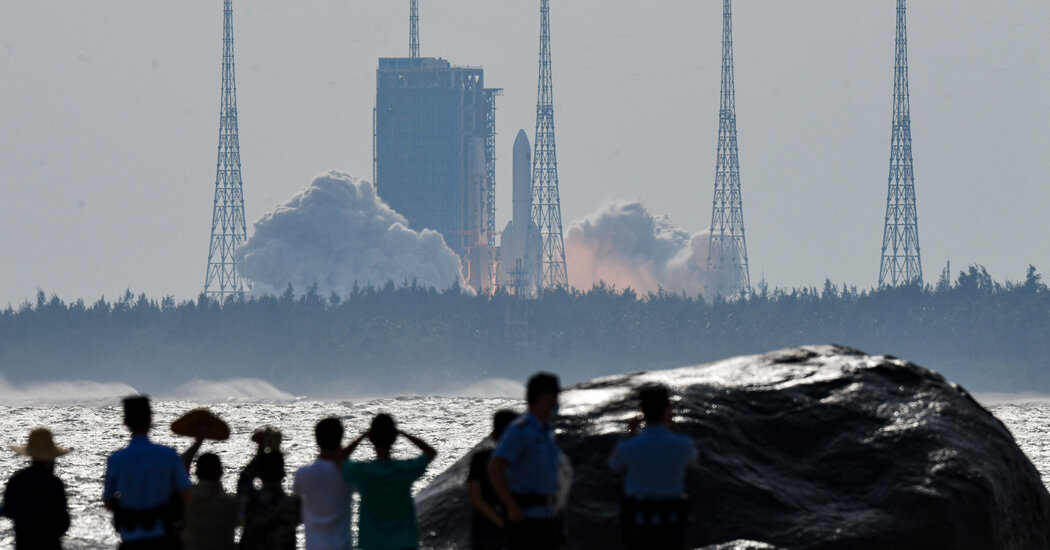Early on Friday morning, pieces of a 23-ton Chinese rocket stage tumbled back to Earth in the Pacific Ocean, the United States Space Command reported in a pair of tweets.
It was China’s latest round of celestial roulette involving a deliberate uncontrolled atmospheric re-entry. The rocket stage, by design, did not include a system to guide it into a specific spot on Earth, far away from people.
That led to nervous sky-watching around the world. As it had three times before in 2020, 2021 and earlier this year, China launched a Long March 5B rocket, one of the most powerful rockets in operation today, on Monday to transport a third and final module of its Tiangong space station, the centerpiece of a space program that is second only to NASA’s in technological sophistication.
Each time, China has successfully gambled that the rocket’s parts would not cause injury to people on the ground. But while there were no immediate reports of damage, Friday’s re-entry did cause disruption, including a closure of Spanish airspace that delayed hundreds of flights in the morning. A rocket of the same design is expected to be used again at least once more, in 2023.
Other space agencies and experts have been critical of the four rocket launches. Bill Nelson, the administrator of NASA, issued a statement criticizing the Chinese for not taking more precautions, as he had for similar launches in April 2021 and July this year.
“It is critical that all spacefaring nations are responsible and transparent in their space activities,” Mr. Nelson said, “and follow established best practices, especially, for the uncontrolled re-entry of a large rocket body debris — debris that could very well result in major damage or loss of life.”
The Long March 5B booster is not the only human-made object, or even the largest, to ever fall from space. And pieces of spacecraft from other countries, including the United States, have also fallen back to Earth recently — including a small piece of a SpaceX vehicle that turned up on an Australian sheep farm in August.
But experts emphasize that such incidents differ from China’s use of the Long March 5B rocket.
“The thing I want to point out about this is that we, the world, don’t deliberately launch things this big intending them to fall wherever,” Ted Muelhaupt, a consultant for the Aerospace Corporation, a nonprofit group largely financed by the U.S. government that performs research and analysis, said in a news conference on…
Click Here to Read the Full Original Article at NYT > Travel…
